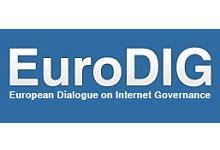Recent studies on accessing educational content
30 Jun 2021 08:30h - 09:30h
Event report
COVID-19 has pushed many schools and universities to switch to online learning. Some of them were prepared for this, but many had to change instantly the way they delivered knowledge, with practical and social challenges.
Adapting to the digital environment
Ms Rute Baptista (Professional Development Manager, European SchoolNet) noted that the pandemic merely showed what was already present, a need to act and a need to transform education immediately to suit users and their needs. Mr Alex Culliere (Senior Software Developer, Mirantis) pointed out that although the trend is to mimic online what is done in the physical learning space, traditional teaching and learning methodologies do not translate well to an online learning environment. He noted that traditional education requires dedicated time and space for learning, which, in the case of online learning is a luxury.
Criteria for choosing the right tool for online learning
Mr Roberto Gaetano (Board Member, EURALO) noted that what is needed is a developed culture concerning tools that can be adapted to optimise digital learning. Culliere specified that digital self-determination and digital autonomy, ethics, and human rights should be some of the criteria of validating the use of a certain tool. He added that respect is needed for people’s digital autonomy in the foundational structure of the tools used for e-learning. Tools should accommodate insecurity about our data, insecurity about our learning process, loneliness, lack of socialisation, and lack of interoperability with other tools. Baptista explained that pedagogical objectives and the purpose of the learning moment are also important factors in choosing a tool. Additionally, tutors and facilitators should have the skills to navigate through digital tools and choose the best tools for their learners.
Access to content
Culliere noted that access to materials often stops when an online course ends. In his opinion, it is essential to have a tool that makes the discovery of educational content easier for teachers and students regardless of the platform on which the content is hosted.
Discoverability of content
Most of the learning materials are accessible through search engines. Yet search engines have their own biases and sometimes do not locate all pertinent and interesting material; so sometimes something that a student needs does not come up in the search results. So other ways to discover content in a personalised manner should be available.
Discussion with the audience
An audience member, Mr Erik Huizer (CEO, GÉANT), noted that it is vital to ensure the safeguarding of public values from manipulation by e-learning platforms and their embedded ethical and cultural prejudice. Tools should not inherit the biases of the industry that developed the software. Culliere noted that the tools should therefore be developed by software engineers of diverse backgrounds.
Another member of the audience, Mr Göksel Ucak (ENIL Youth Network), highlighted that for persons with disabilities, describing their disabled identity on online platforms can be an issue, as the platforms may ask for medical reports as proof. Attending examinations can also be challenging, as persons with disabilities might not be able to complete exams without an assistant, which platforms seldom allow. Culliere added that a list of recommendations on the social aspects of accessible learning would be useful to elaborate.
Related topics
Related event

